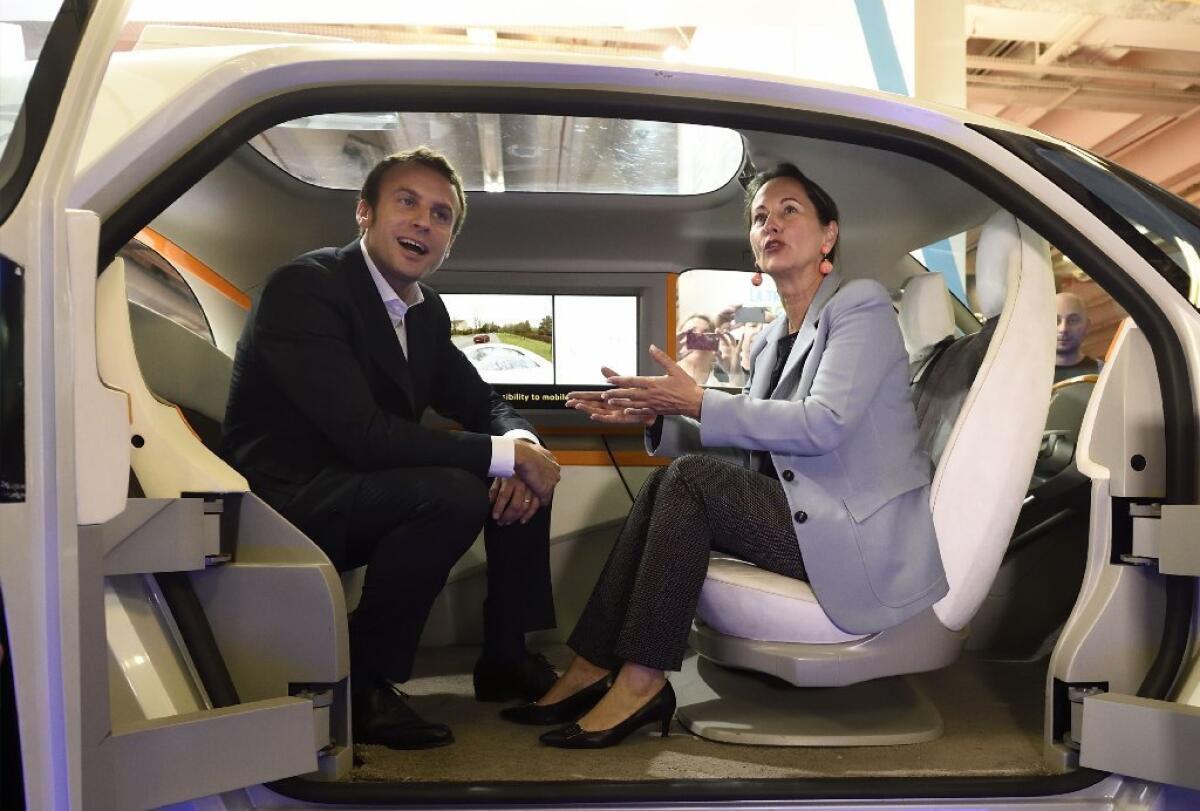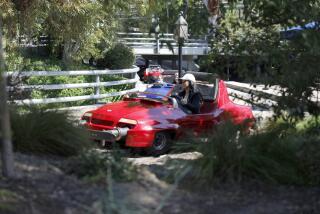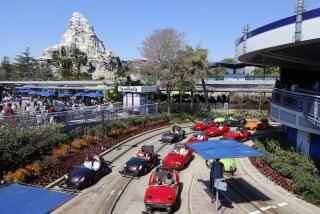Opinion: The difference between L.A., Paris auto shows -- and why I love my Prius

The Los Angeles Auto Show revs its engines this week with all the bells and whistles of over-the-top, red-carpet-scale premieres for new models and concept cars that bowl over even the most jaded car enthusiast.
Paris’ 2014 Auto Show last month was a bit less Hollywood -- with a few exceptions, among them the Land Rover parked alongside the Seine next to pairs of giant Wellington boots -- and quite earnest when it came to green machines.
French president Francois Hollande showed up to promote electric and hybrid vehicles as a way of getting the French auto industry back in fighting trim, and to tout the government’s offer of a bonus of up to 10,000 euros for people buying one.
Hollande pledged to have 16,000 more vehicle charging stations installed across France. One of them is already in the Elysee Palace, the presidential residence. (His unofficial interest in enviro-friendly transport was in evidence when he was snapped astride a motor scooter making his below-the-radar way to his reputed girlfriend.)
The maquettes on display suggested actual cars that are several years down the production road, like a solar-powered model destined for testing in Australia. One concept car allowed visitors a look inside the self-driving model “where everyone is a passenger,” as in Google’s self-driving car. It had the alluring air of a fabulous party car for Champagne-fueled racketing around Paris, as Owen Wilson’s character did in “Midnight in Paris.”
Peugeot, Jaguar and Citroen all had new fuel-mindful models, but the longest lines I saw (the shortest lines were, unlike anywhere else in Paris, for the women’s bathrooms) were for a big, flashy exhibition of big, flashy American muscle cars , some of them claiming green credentials by using bio-fuels: A Dodge Ram truck “starting at 47,575 euros!” a silvery matte-finish Shelby Cobra, and a 1965 white Mustang with tuck-and-roll upholstery.
The French slang for window shopping is “faire du leche-vitrines,” literally window-licking, and French men and boys were doing practically that.
“All the French want, dream of American cars, like when I was growing up, the American films, the space, the speed.” This was Thomas Boggiani, a consultant for American Car City in Paris. “These are rare in Europe, and as they disappear, they’re getting even more expensive.” These cars are not for shopping or picking up the kids, but for Sunday showing off. Boggiani used to sell Mustangs to fathers and sons who restored them as Sunday projects.
The auto differences between Paris and L.A. are more than cultural; they are practical, and economic.
Vehicle ownership in Paris is about 330 per 1,000 people, and some of that may be skewed by official vehicles; I saw a lot of Priuses parked around Paris’ City Hall. In Los Angeles, it’s at least 540 vehicles per 1,000.
In 2012, French auto sales were the lowest they’d been in 15 years. Easy Paris public transit has something to do with that, as does the lack of parking and garage space and high fuel costs.
The car-owning Parisians I know generally don’t take the vehicles out just to get across town, because the Metro is easier and faster. In the 19th century, France was first out of the automaking starting gate and held the lead in car ownership for a long time. But Americans are restless and movable, and the love of the car seems more democratic and entrenched here.
I admit it: I was happy to come back to my trusty Prius, which functions as transport, rolling closet, portable office, disaster shelter and isolation booth. And unlike about 40% of millennials, I think I’d still choose my car over my phone. It’s philosophical, I guess: a phone lets you keep in touch with people; a car lets you keep your distance from them.
Follow Patt Morrison on Twitter @pattmlatimes
More to Read
A cure for the common opinion
Get thought-provoking perspectives with our weekly newsletter.
You may occasionally receive promotional content from the Los Angeles Times.







